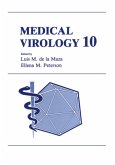This book critically reviews both clinical and immunological aspects of auto- mune disease with a strong emphasis on multiple sclerosis (MS). Research in MS is one of the fastest-developing areas in modern medicine. It employs some of the newest concepts in autoimmune mechanisms and an array of new treatments that would have been considered science fiction only two decades ago. It is an area in which research findings are being actively translated into treatment strategies. Advances in this area have both clinical and scientific implications for other autoimmune conditions that share many similarities with MS. The book, which comprises 24 chapters contributed by experts and thought leaders in the field, is designed to provide new insights into two arenas: our current understanding of autoimmune mechanisms and immune regulation and the latest developments in immunotherapy. This book is intended for both researchers and clinicians. Its purpose is not only to provide a comprehensivereview on the recent advances in the two arenas m- tioned above but also to reflect the current opinions or concepts that influence our thinking about the disease mechanisms and our way of treating MS patients. Many of these issues have emerged from recent studies and are somewhat contradictory to traditional thinking. For example, recent studies have indicated that MS is more heterogeneous in many aspects than traditionally thought. Pathologically, in ad- tion to demyelination and inflammation, there is axonal loss or damage detectable in the central nervous system (CNS) lesions.
Bitte wählen Sie Ihr Anliegen aus.
Rechnungen
Retourenschein anfordern
Bestellstatus
Storno








